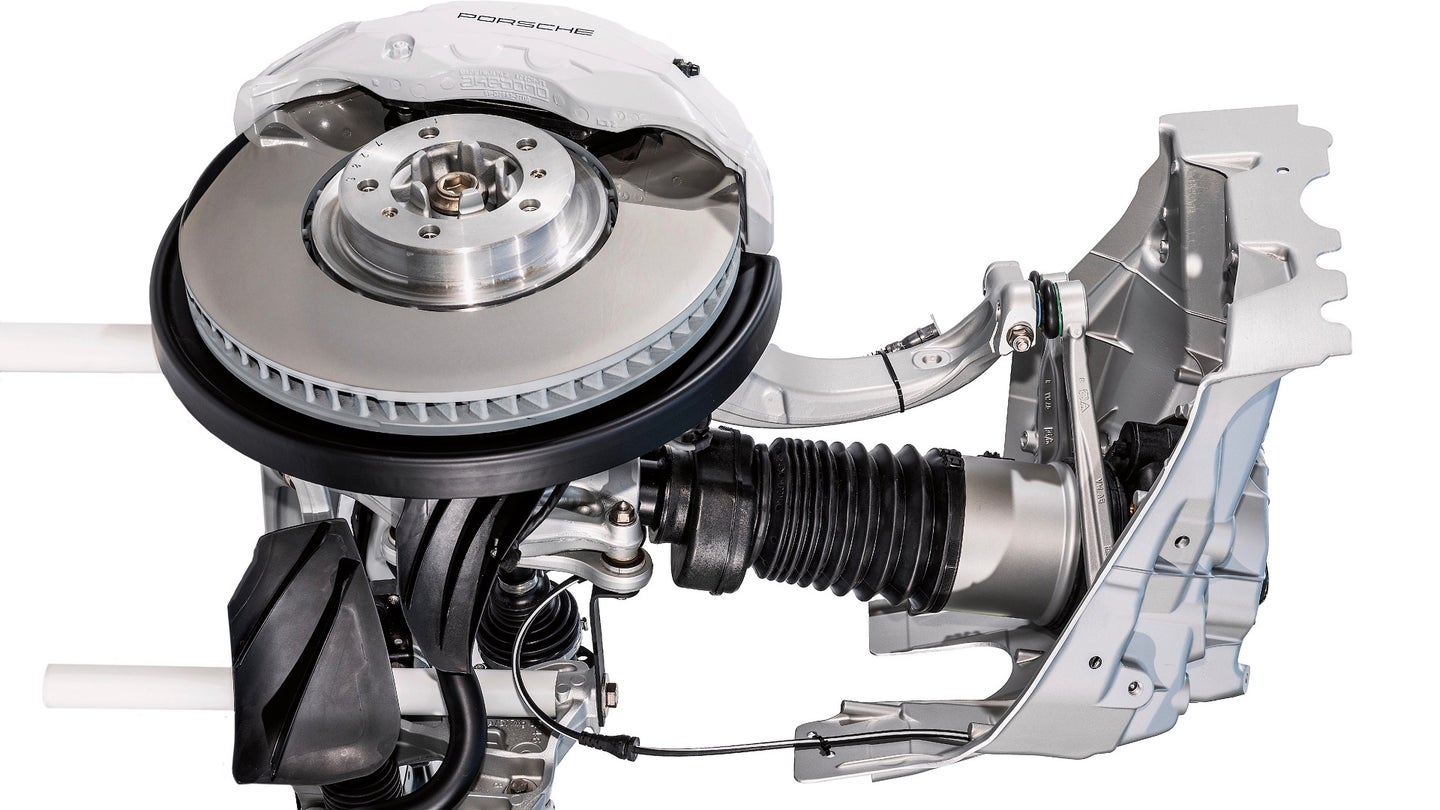Porsche Surface Coated Brakes Make Debut on Cayenne Turbo
The tungsten carbide surface gives the brakes a mirror-like finish that never fades away.

Everybody likes to talk about super-car technology. Hybrid drivetrains, compound boost, and carbon fiber frames are becoming as common as fiberglass, turbos, and steel. The march forward to new technology never ceases. Porsche just announced a new material they’re using in brakes which will make its debut on the new Cayenne Turbo.
Brakes may not be the sexiest subject in car technology but this new technology from Porsche is gorgeous. The Porsche Surface Coated Brakes have a mirror-like finish that keeps the braking surface impeccably clean and sparkling. The main ingredient is tungsten carbide. First developed in the early twentieth century, the material was first called “wie Diamant” which in German means “like diamond.” Tungsten and carbon form a mixed crystal so hard it can be used to cut glass. The material is ten times harder than cast iron, making it perfect for brakes. The material also produces hardly any brake dust and doesn’t rust.
Porsche believes that the new brake surface functions nearly as well as ceramic brakes but doesn’t need racing pads and only costs about a third of the cost of ceramic brakes. It took years of development to finally get the formula right as coating the brake surface with tungsten carbide was the only way to keep the costs down. Eventually, Porsche figured out that if it took a gray-iron brake disk and laser-processed it to offer structure, then galvanized it with an interlayer, it would be able to get the tungsten carbide to stick. But only if it used a high-velocity oxy-fuel spraying process to shoot particles at the disk at supersonic speeds. The process is described as a Star Wars lightsaber firing around the disk.
Porsche mechanical engineer and brake expert at the Porsche Development Center in Weissach, Dr. Matthias Leber, thinks that the holy grail of brake development is still far away. He said, “As electrification makes ever greater advances in automotive engineering, it’ll also bring new types of brakes. Recuperation, for example, is a completely non-wear type of deceleration, which makes it all the more interesting, because at some point we’ll be able to use it for 90 percent of all standard braking action. We have to keep working on it.”
Next time you’re pumping the brakes think about how crazy the manufacturing process has become for some of these cars. No wonder a Cayenne Turbo will set you back $116,500.
